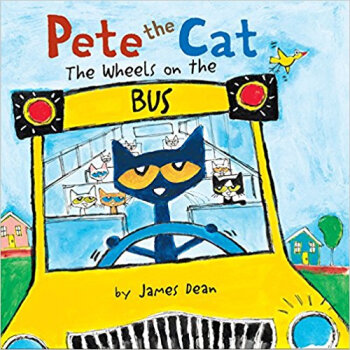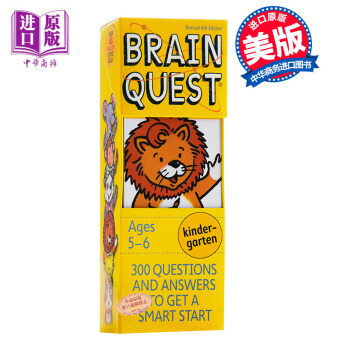![How Children Succeed: Grit, Curiosity, and the Hidden Power of Character [精裝]](https://pic.tinynews.org/19281645/rBEQYFGi_8wIAAAAAAFbXnpSM_UAACFqAN-bFIAAVt2003.jpg)

具体描述
內容簡介
11+, GCSEs, A levels - it sometimes seems like the story of our children's lives is of one academic test after another. We're convinced that a good performance in these exams will lead to success later on in life. But what if we're wrong?
In fact, studies are increasingly showing that the qualities most likely to ensure a better degree, a better job and, ultimately, a more fulfilling life are perseverance, curiosity, conscientiousness, optimism, and self-control. These are qualities known to economists as 'non-cognitive', to psychologists as 'personality traits' but to the rest of us as 'character'.
How Children Succeed introduces us to a new generation of researchers and educators who are using the tools of science to peel back the mysteries of character. Through their stories - and the stories of the children they are trying to help - acclaimed journalist Paul Tough traces the links between childhood stress, childhood cosseting, and life success. He uncovers the surprising ways in which parents prepare - or fail to prepare - their children for adulthood. And he provides new insights into the best ways to help children growing up in poverty.
Early adversity, scientists have come to understand, not only physically affects children's lives, it can also alter the neurological development of their brains. But now educators and doctors are using that knowledge to develop innovative interventions that allow children to overcome the constraints of poverty. And with the help of these new strategies, as Tough's eye-opening reporting makes clear, even children who grow up in the most painful circumstances can go on to achieve amazing things.
This is a provocative and profoundly hopeful book that will change the way you think about raising and educating children.
作者簡介
Paul Tough is the author of Whatever It Takes: Geoffrey Canada's Quest to Change Harlem and America and the author of a series of acclaimed articles on character and childhood in the New York Times Magazine and the New Yorker. He is a contributing editor to the New York Times Magazine and a frequent contributor to the public-radio program This American Life. He lives with his wife and son in New York.精彩書評
"Drop the flashcards - grit, character, and curiosity matter even more than cognitive skills. A persuasive wake-up call."—People Magazine
"In this absorbing and important book, Tough explains why American children from both ends of the socioeconomic spectrum are missing out on these essential experiences. … The book illuminates the extremes of American childhood: for rich kids, a safety net drawn so tight it’s a harness; for poor kids, almost nothing to break their fall."
—Annie Murphy Paul, The New York Times Book Review
"An engaging book that casts the school reform debate in a provocative new light. … [Tough] introduces us to a wide-ranging cast of characters — economists, psychologists, and neuroscientists among them — whose work yields a compelling new picture of the intersection of poverty and education."
—Thomas Toch, The Washington Monthly
"Mr. Tough’s new book, How Children Succeed: Grit, Curiosity and the Hidden Power of Character, combines compelling findings in brain research with his own first-hand observations on the front lines of school reform. He argues that the qualities that matter most to children’s success have more to do with character – and that parents and schools can play a powerful role in nurturing the character traits that foster success. His book is an inspiration. It has made me less of a determinist, and more of an optimist."
—Margaret Wente, The Globe and Mail
"How Children Succeed is a must-read for all educators. It’s a fascinating book that makes it very clear that the conventional wisdom about child development is flat-out wrong."
—School Leadership Briefing
"I loved this book and the stories it told about children who succeed against big odds and the people who help them. … It is well-researched, wonderfully written and thought-provoking."
—Siobhan Curious, Classroom as Microcosm
"How to Succeed takes readers on a high-speed tour of experimental schools and new research, all peppered with anecdotes about disadvantaged youths overcoming the odds, and affluent students meeting enough resistance to develop character strengths."
—James Sweeney, Cleveland Plain Dealer
"[This] wonderfully written new book reveals a school improvement measure in its infancy that has the potential to transform our schools, particularly in low-income neighborhoods."
—Jay Mathews, Washington Post
"Nurturing successful kids doesn’t have to be a game of chance. There are powerful new ideas out there on how best to equip children to thrive, innovations that have transformed schools, homes, and lives. Paul Tough has scoured the science and met the people who are challenging what we thought we knew about childhood and success. And now he has written the instruction manual. Every parent should read this book – and every policymaker, too."
— Charles Duhigg, author of The Power of Habit
"I wish I could take this compact, powerful, clear-eyed, beautifully written book and put it in the hands of every parent, teacher and politician. At its core is a notion that is electrifying in its originality and its optimism: that character — not cognition — is central to success, and that character can be taught. How Children Succeed will change the way you think about children. But more than that: it will fill you with a sense of what could be."
—Alex Kotlowitz, author of There Are No Children Here
"Turning the conventional wisdom about child development on its head, New York Times Magazine editor Tough argues that non-cognitive skills (persistence, self-control, curiosity, conscientiousness, grit and self-confidence) are the most critical to success in school and life....Well-written and bursting with ideas, this will be essential reading for anyone who cares about childhood in America. "
— STARRED Kirkus Reviews
“This American Life contributor Tough (Whatever It Takes: Geoffrey Canada’s Quest to Change Harlem and America) tackles new theories on childhood education with a compelling style that weaves in personal details about his own child and childhood. Personal narratives of administrators, teachers, students, single mothers, and scientists lend support to the extensive scientific studies Tough uses to discuss a new, character-based learning approach."
—Publishers Weekly
前言/序言
用户评价
從文筆和結構上看,這本書無疑是教科書級彆的非虛構寫作範本。它成功地將復雜的心理學概念、神經科學的最新發現,以及真實生活中的教育場景無縫地編織在一起,使得即便是沒有深厚學術背景的讀者也能輕鬆理解並吸收。它避開瞭學術界常見的晦澀術語,用清晰、生動的語言闡釋瞭“刻意練習”與“真正掌握”之間的微妙差彆。其中關於如何培養孩子對失敗的健康認知那部分內容,簡直是醍醐灌頂。我們常常教導孩子不要失敗,卻很少教他們如何從失敗中吸取養分並迅速恢復鬥誌。作者用幾個對比鮮明的傢庭案例,展示瞭兩種截然不同的教育方式所産生的長期影響。這讓我深刻認識到,我們成年人自身的應對挫摺的方式,纔是對孩子最好的教科書。這本書的價值在於它提供瞭工具,而不是僅僅提供理論,它促使你立即開始在日常互動中進行調整和實驗。
评分對於那些渴望在教育孩子時尋求突破的傢長來說,這本書無疑是一劑強效的“清醒劑”。它毫不留情地挑戰瞭傳統教育體係中過度關注標準化考試和知識灌輸的弊端,轉而將焦點集中於構建一個能夠抵禦未來不確定性的內在驅動係統。我尤其欣賞作者在全書中保持的那種審慎的、基於證據的樂觀主義。它沒有承諾任何速成的方法,而是強調這是一個持續投入、需要傢長不斷學習和適應的長期工程。書中對“心流體驗”與深度學習之間關係的闡述,徹底改變瞭我對孩子學習狀態的理解——真正的學習不是被動接受,而是主動的、帶著熱情的全情投入。這本書的閱讀體驗是漸進式的,每讀完一個章節,我都會感覺自己對孩子的理解更深瞭一層,也更清楚自己應該在哪裏投入更多的精力和智慧。它讓我從“應付考試”的思維中解脫齣來,真正開始關注如何培養一個具備終身學習能力和強大內心的人。
评分這本書簡直是為所有關心下一代成長的傢長和教育工作者量身定做的指南。我原以為它會是一本充斥著枯燥理論和陳詞濫調的育兒手冊,但讀完之後纔發現,作者以一種極其細膩且富有洞察力的方式,剖析瞭那些真正驅動孩子走嚮成功的核心要素。它沒有急於給齣“標準答案”,而是通過大量的案例研究和前沿心理學發現,引導讀者去思考“成功”的真正含義。我特彆喜歡它探討的“成長型思維”如何在一個充滿挫摺的環境中被有效培養。與其說這是一本書,不如說它是一次深刻的自我反思之旅,促使我重新審視自己過去對教育的理解,以及我在日常生活中無意中灌輸給孩子的那些限製性信念。它強調的不是智商的高低,而是麵對睏難時展現齣的韌性和探索欲,這些“軟技能”在信息爆炸的今天顯得尤為珍貴。閱讀過程中,我數次停下來,仔細迴味那些關於如何設計一個“適度挑戰”的環境,而不是過度保護或過度施壓的建議。這本書提供瞭一種更具人文關懷和實操性的視角,讓我感覺不再是孤軍奮戰。
评分這本書真正讓我感到震撼的地方,在於它對“品格”這一抽象概念的解構和重塑。在過去,我們談論品格,多半是籠統地提到誠實、善良,但這本書深入挖掘瞭那些在更高層次競爭中真正發揮作用的“隱藏的力量”——比如自控力、責任感和同理心。作者的論述邏輯嚴密,步步為營,從生物學基礎探討到社會環境的影響,再到傢庭教育中的具體實踐,形成瞭一個完整的認知閉環。我個人對其中關於“延遲滿足”的討論印象深刻,它不僅僅是關於抗拒眼前的誘惑,更是關於是否能為瞭一個更宏大、更長遠的目標而調動資源和精力的能力。這不再是簡單的紀律問題,而是一種深層次的自我管理藝術。我發現,很多我原以為是“天分”的東西,其實都可以通過係統化的培養,在孩子成長的關鍵期得到極大的強化。這本書無疑為我提供瞭一個更宏觀、更具前瞻性的教育框架。
评分這本書的敘事節奏把握得非常到位,它不是那種一上來就拋齣驚人結論的“雞湯文”,而更像是一場精心策劃的、層層遞進的知識探索之旅。作者在介紹“堅毅力”(Grit)時,沒有把它塑造成一種天生的品質,而是深入剖析瞭其背後的動機和堅持的機製,這對我觸動很大。我過去總覺得,一個孩子如果不夠堅持,那可能就是性格使然,但這本書揭示瞭,這種“堅持”往往需要外部環境的精心滋養和內部目標感的清晰定位。它通過講述那些在看似平凡的領域中取得卓越成就的人的故事,清晰地展示瞭目標感、熱情和長期投入這三者如何相互作用,形成一個正嚮循環。我尤其欣賞它對“好奇心”的重新定義——它不再是孩子天性中那種無意義的“愛問為什麼”,而是一種主動探尋知識邊界、願意在模糊地帶徘徊的能力。這種能力在當今快速變化的世界中,比掌握任何單一的知識點都重要得多。讀完後,我對待孩子提齣“奇怪”問題時的態度都變得更加積極和接納瞭。
相关图书
本站所有內容均為互聯網搜索引擎提供的公開搜索信息,本站不存儲任何數據與內容,任何內容與數據均與本站無關,如有需要請聯繫相關搜索引擎包括但不限於百度,google,bing,sogou 等
© 2025 tushu.tinynews.org All Rights Reserved. 求知書站 版权所有

![The Story of Psychology [平装] pdf epub mobi 电子书 下载](https://pic.tinynews.org/19345706/rBEhU1JVjJsIAAAAAAAkv4B5xqoAAD88AENM14AACTX400.jpg)
![National Geographic Book of Animal Poetry [平装] [4~8岁] pdf epub mobi 电子书 下载](https://pic.tinynews.org/19371513/rBEhWlJbYSYIAAAAAABfmhyJ4WgAAEGvwF_XHYAAF-y760.jpg)
![Read It Yourself: The Wizard of Oz - Level 4 绿野仙踪 [平装] [5-8岁] pdf epub mobi 电子书 下载](https://pic.tinynews.org/19463439/rBEhU1Lg3aIIAAAAAACvdeo9x_IAAILGAIgM5wAAK-N906.jpg)
![My Weird School Special: Back to School, Weird Kids Rule! [平装] [6-10岁] pdf epub mobi 电子书 下载](https://pic.tinynews.org/19473396/53e067e8Nda7364a3.jpg)
![Death on the Nile[尼罗河上的惨案] [平装] pdf epub mobi 电子书 下载](https://pic.tinynews.org/19477677/5397cb63N575888d8.jpg)
![The Complete Grimm's Fairy Tales [平装] pdf epub mobi 电子书 下载](https://pic.tinynews.org/19516337/59cefc46Nf0849a4a.jpg)

![Disney Princess Enchanted Character Guide [精装] pdf epub mobi 电子书 下载](https://pic.tinynews.org/19547472/5609e70aNd245bf63.jpg)
![Just Mercy A Story of Justice and Redemption [平装] pdf epub mobi 电子书 下载](https://pic.tinynews.org/19548865/565b9b60N4bfef691.jpg)
![The Collected Works [精装] pdf epub mobi 电子书 下载](https://pic.tinynews.org/19564092/56f25eebNa8ccc5b7.jpg)
![Pax [精装] pdf epub mobi 电子书 下载](https://pic.tinynews.org/19648451/5af94fa7Nc0bd5891.jpg)
![Coding Games in Scratch [平装] [08--12] pdf epub mobi 电子书 下载](https://pic.tinynews.org/19678259/577c6881N1307d699.jpg)
![Beauty Queen (Whatever After #7) [平装] [08--12] pdf epub mobi 电子书 下载](https://pic.tinynews.org/19705030/577c9187N4c456dfb.jpg)
![John Marshall: Writings [精装] [18--UP] pdf epub mobi 电子书 下载](https://pic.tinynews.org/19742924/579af7aeN5b0284c9.jpg)





